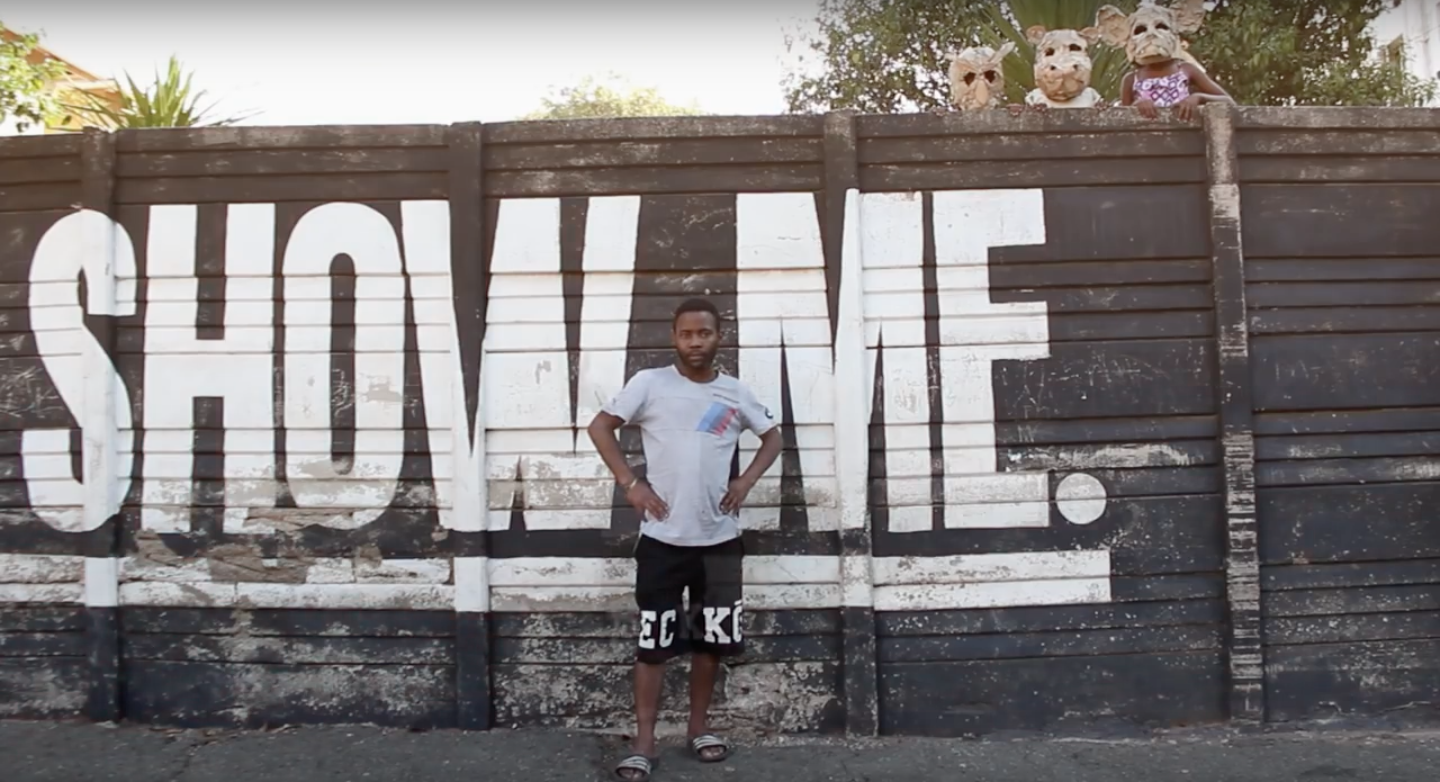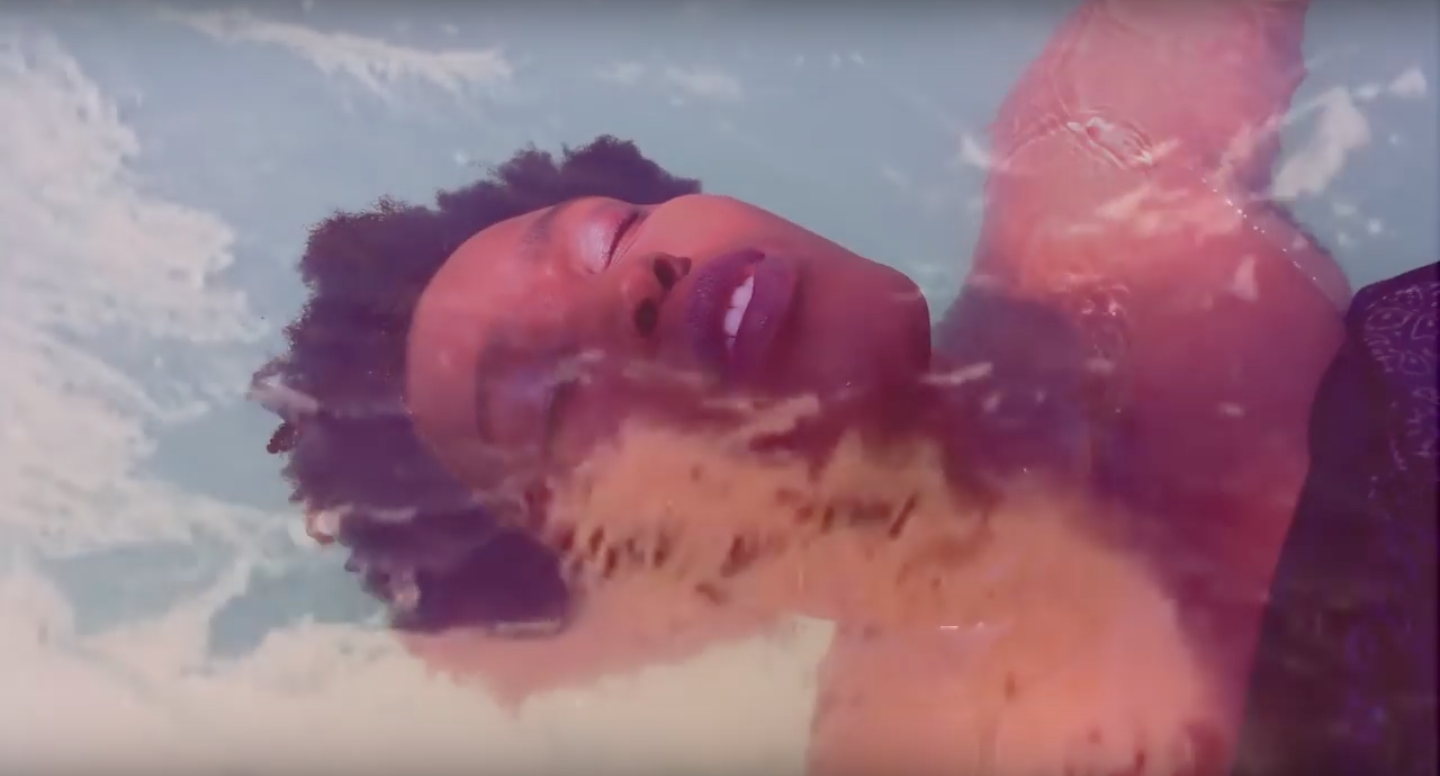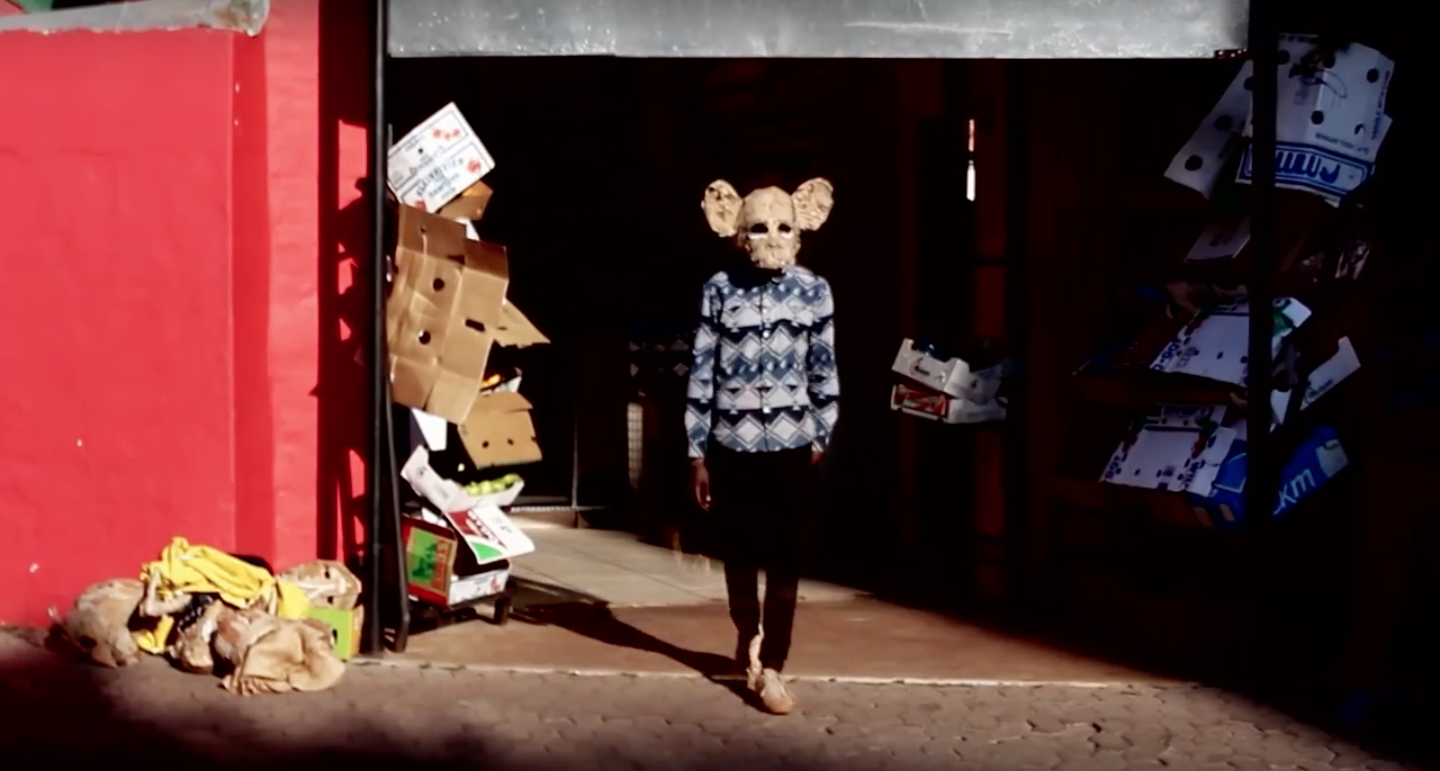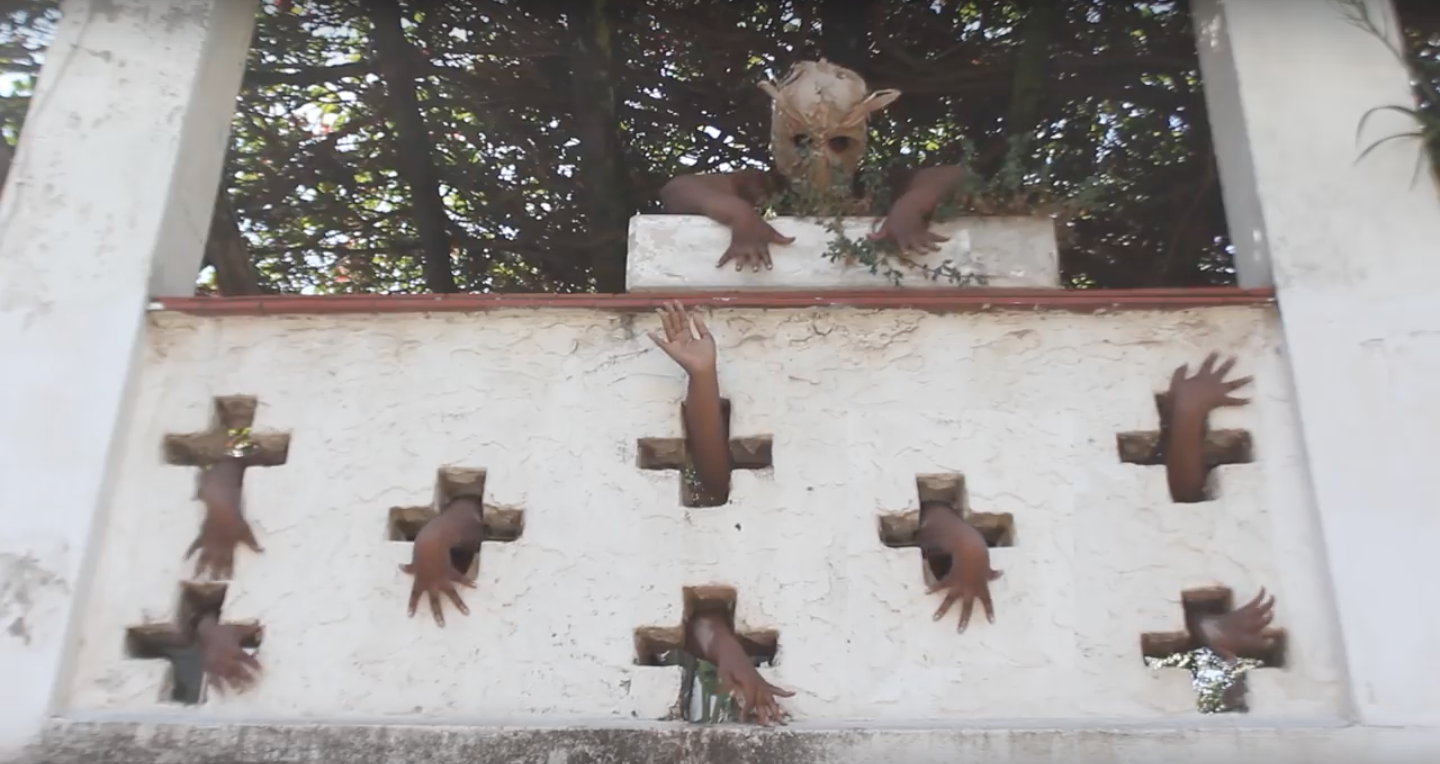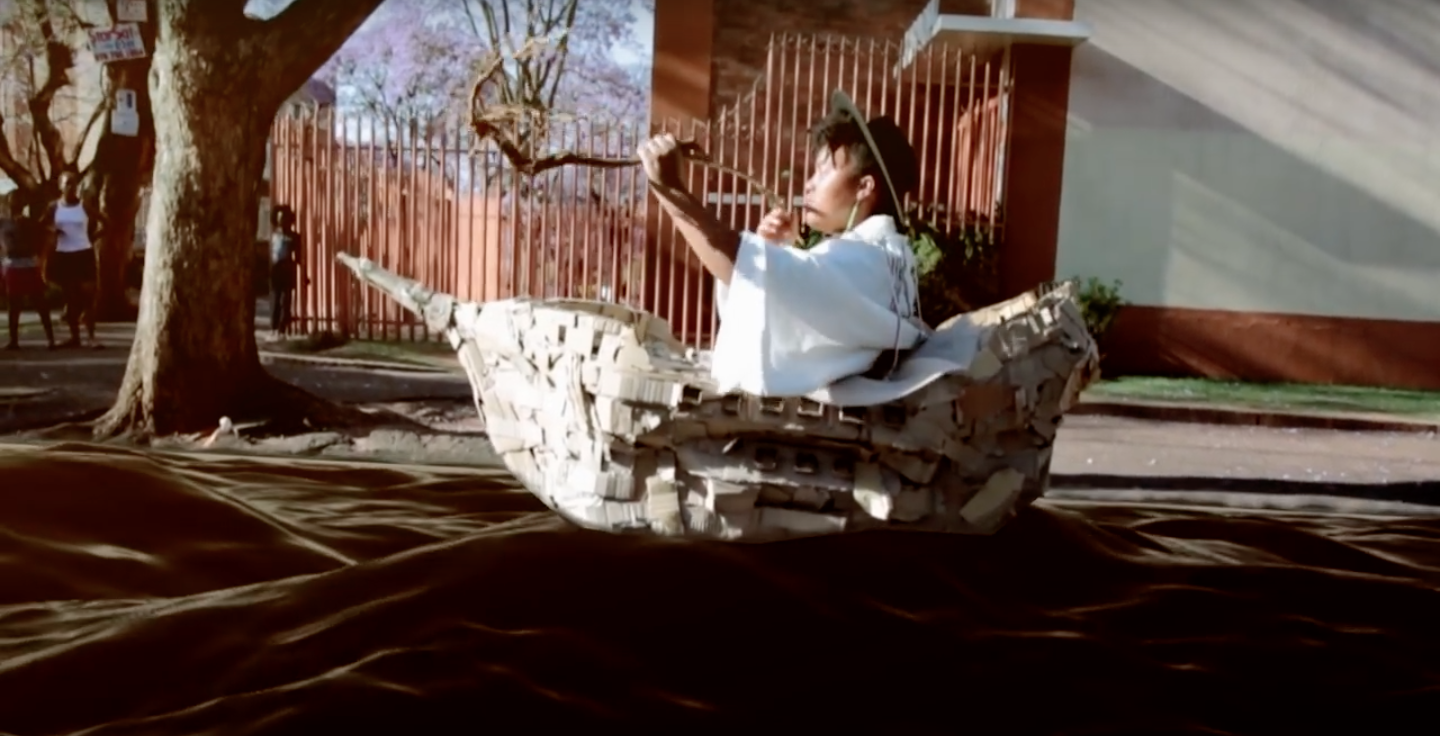Tsholofelo Seleke, Siyanda Marrengane and Refiloe Namise are the young, female artists who make up the collective anticlockwise INGWEMBE. The collective has an interest in “cultural objects”, including the wooden spoon (ingwembe). This is an object that is central to their creative and artistic practice, made clear from its presence in their collective name. When asked to unpack their name, the collective presented me with an explanation that resembles the format of a dictionary definition that combined the various associations attributed to the wooden spoon:
*ingwembe/lesokwane: a woman’s tool, a tool that instills discipline, a signifier of power- of an ‘invisible’ power, a symbol of inferiority, of domestication, mixing and re-mixing.
There is an immediate link between the word anticlockwise and ingwembe. Anticlockwise brings to mind the idea of movement, flow and direction. Combined with ingwembe, one is able to imagine the rhythmic movement made when using a wooden spoon for cooking. The prefix ‘anti’ makes those who encounter their work aware of the fact that they are working against the flow and rhythm of institutions, texts and spaces that deny the presence of people of colour, particularly women of colour. Their work is what they refer to as “coll[activism]”; a recognition of the importance of collaborative creation and activism. This is also a concise way to present the operation of their art practice.
“We are questioning the use of space- how a space is used, can be used, how it was previously used, imagined, how far it can be occupied, in various ways. This interest is often sparked by contexts, and how we read objects in different spaces. We explore these interrogations through sound, visual imagery, objects, texts and performance (performance-based installations/installation-based performance). Anything that can be experienced (seen, read, smelt, heard, felt, touched) can be a text. We enjoy the possibilities of being more…and see the importance of learning, teaching, sharing knowledges in ways that can be read differently.”
In this exploration they are also on the hunt for a language that exists outside of the art world, one which is more “public”. This language can be seen, heard, felt, smelt and spoken, and is more fluid. When asked how they would recognise this language, anticlockwise expressed that “You will know it when you see it” stating that “this language is continuously being recreated.”
Their first event Noma Yini: Round 1 was the closing of an event that was held at NGO (Nothing Gets Organised) in March 2016. The project was a collaboration with Eastside Projects (based in Birmingham) and facilitated by Gabi Ngcobo. It was based on the idea of a circuit, as well as the exchange and sourcing of materials around Nugget Square in Jeppestown. Participation took the form of a workshop and the making of portable chairs.
Having tasted the stress and excitement of creating an event, anticlockwise took on another – OK’salayo. It began as the celebration of a friend’s recent job, and then transformed into a full on party, with a ‘silent’ landlord offering them a space at a former panel beaters. There is a OK’salayo 2.0 in the making.
At the moment the collective is working on the idea of an experimental school called ama-fly-by-nights. “It is everywhere, yet nowhere, and it exists within us”. This school focuses on forms of knowledge production that are open and allows for narratives to be expressed in various languages (oral, visual, sonic, etc.)
Follow anticlockwise INGWEMBE on Instagram to keep up with their work.
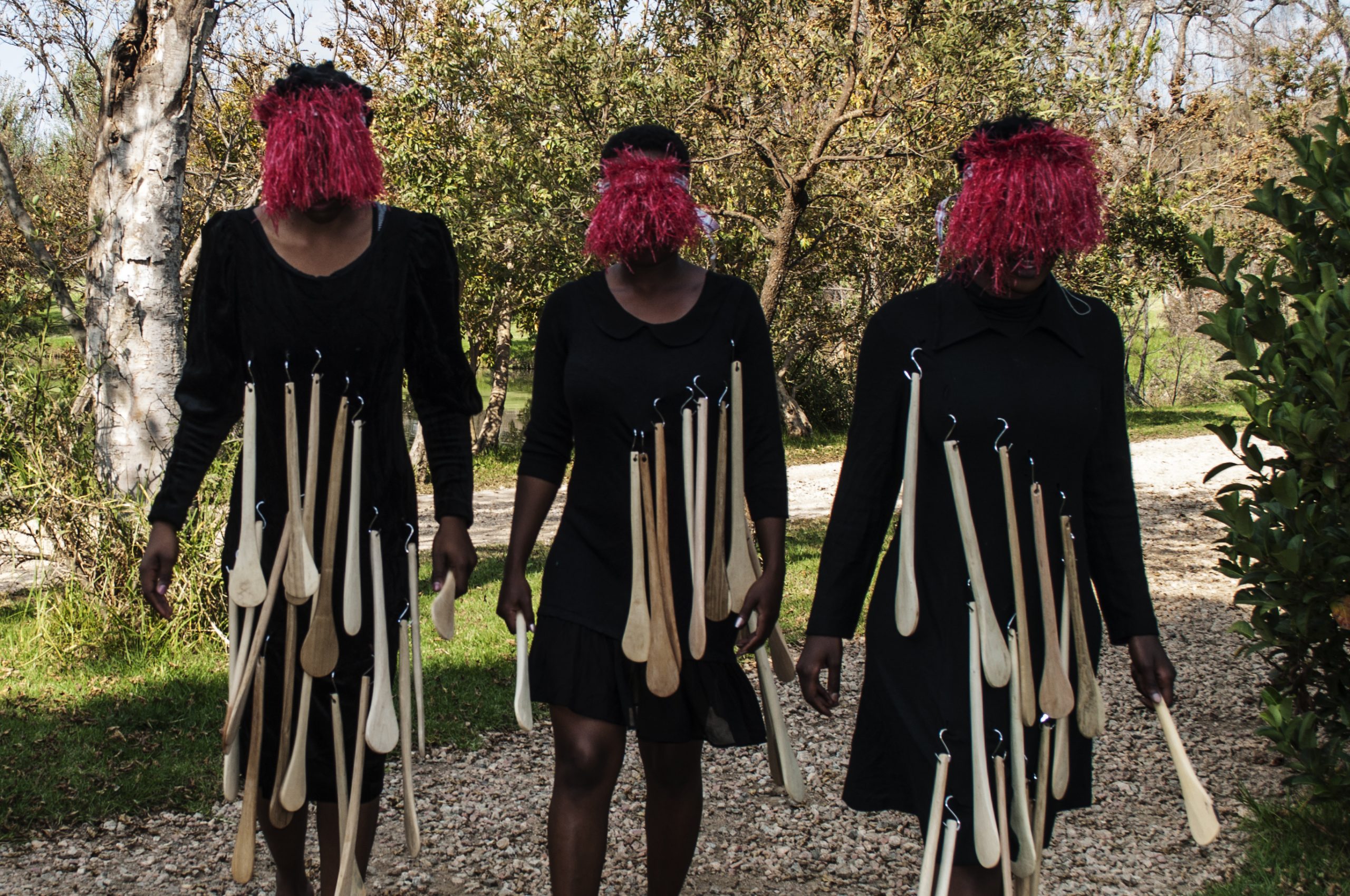
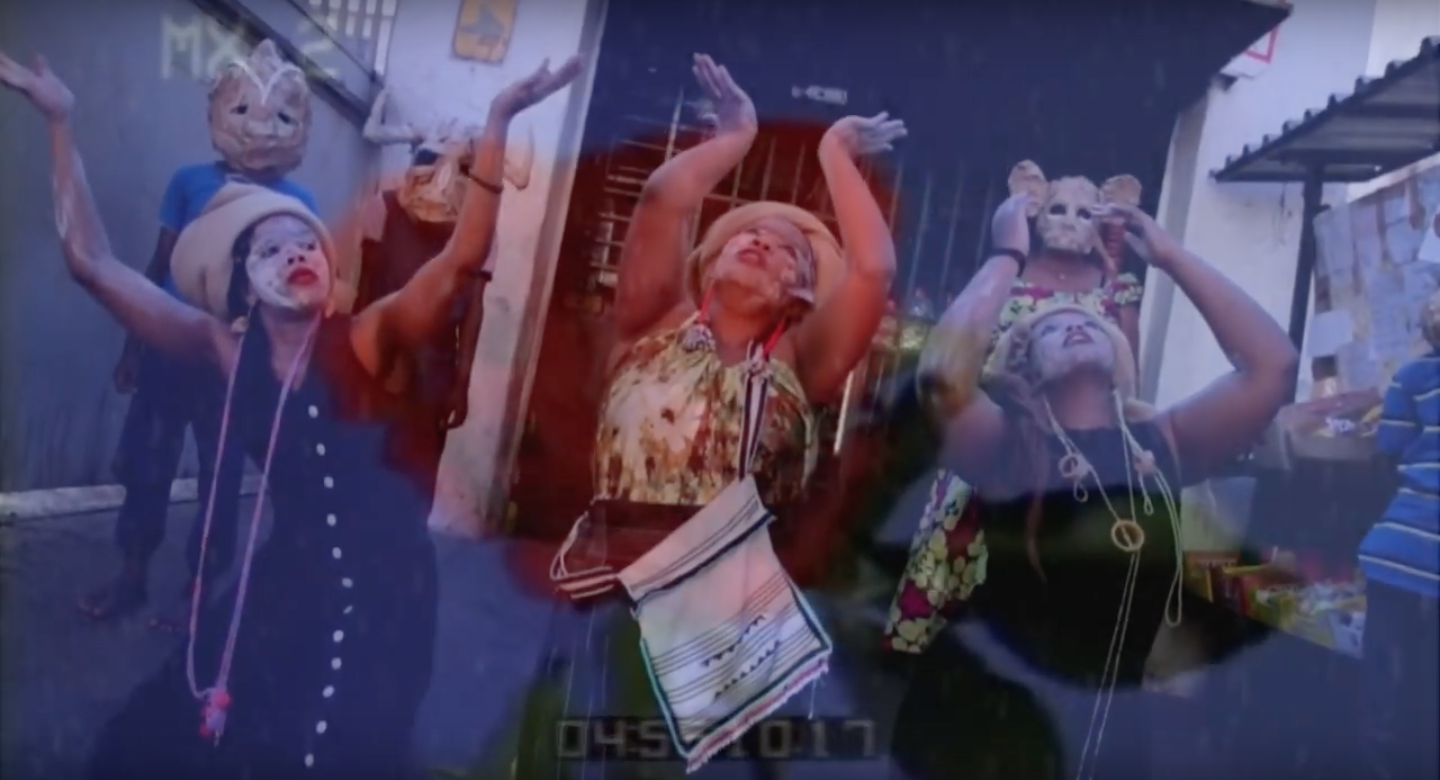
 The striking film promotes her 2016 debut album
The striking film promotes her 2016 debut album 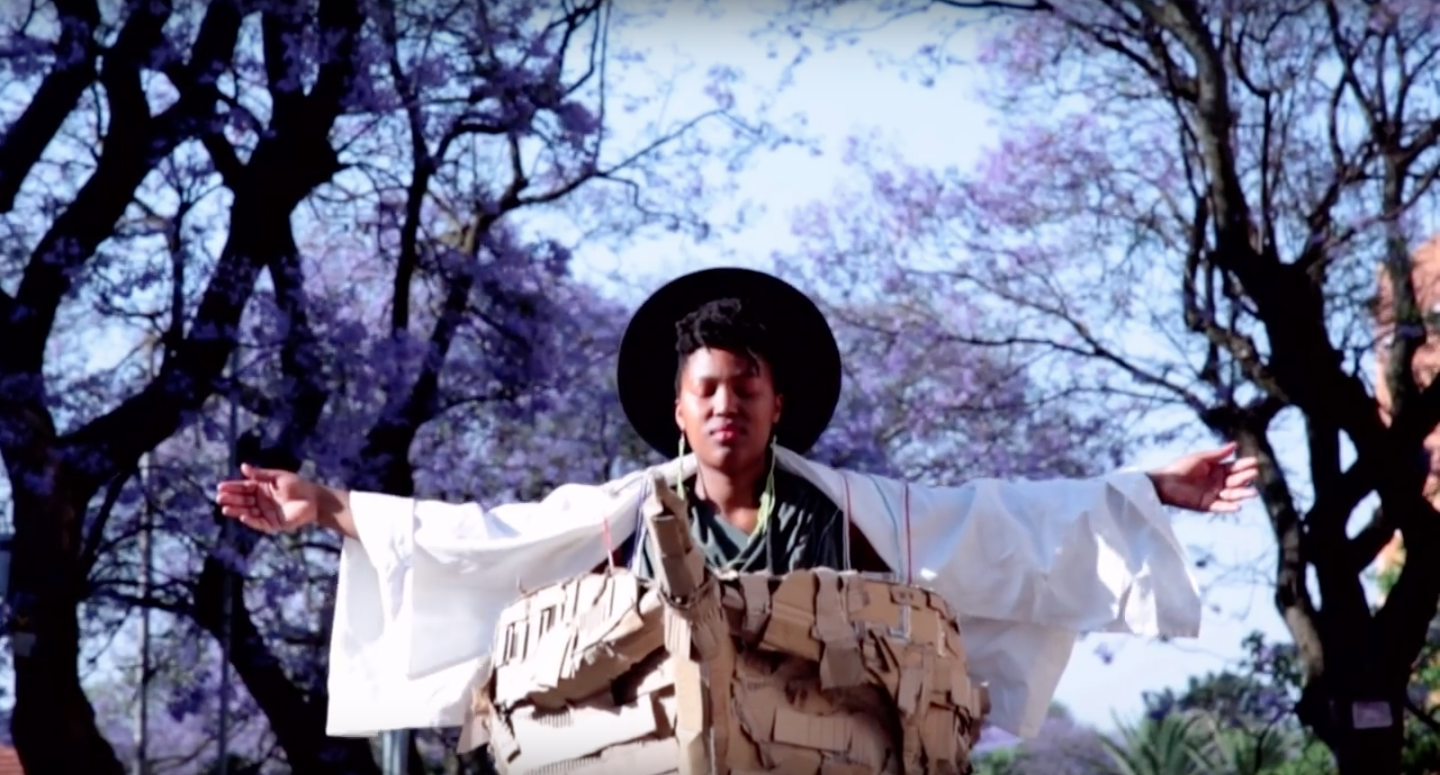 ‘Dreams’ was one of her earliest works, initially inspired by the rawness of first heartbreak. But as the years have passed, it has taken on new layers of meaning. For Msaki the video shifted the song’s lyrics from the explicitly personal to broader questions of ” who can dream? who can follow their dreams? Whose dreams can become real?”.
‘Dreams’ was one of her earliest works, initially inspired by the rawness of first heartbreak. But as the years have passed, it has taken on new layers of meaning. For Msaki the video shifted the song’s lyrics from the explicitly personal to broader questions of ” who can dream? who can follow their dreams? Whose dreams can become real?”.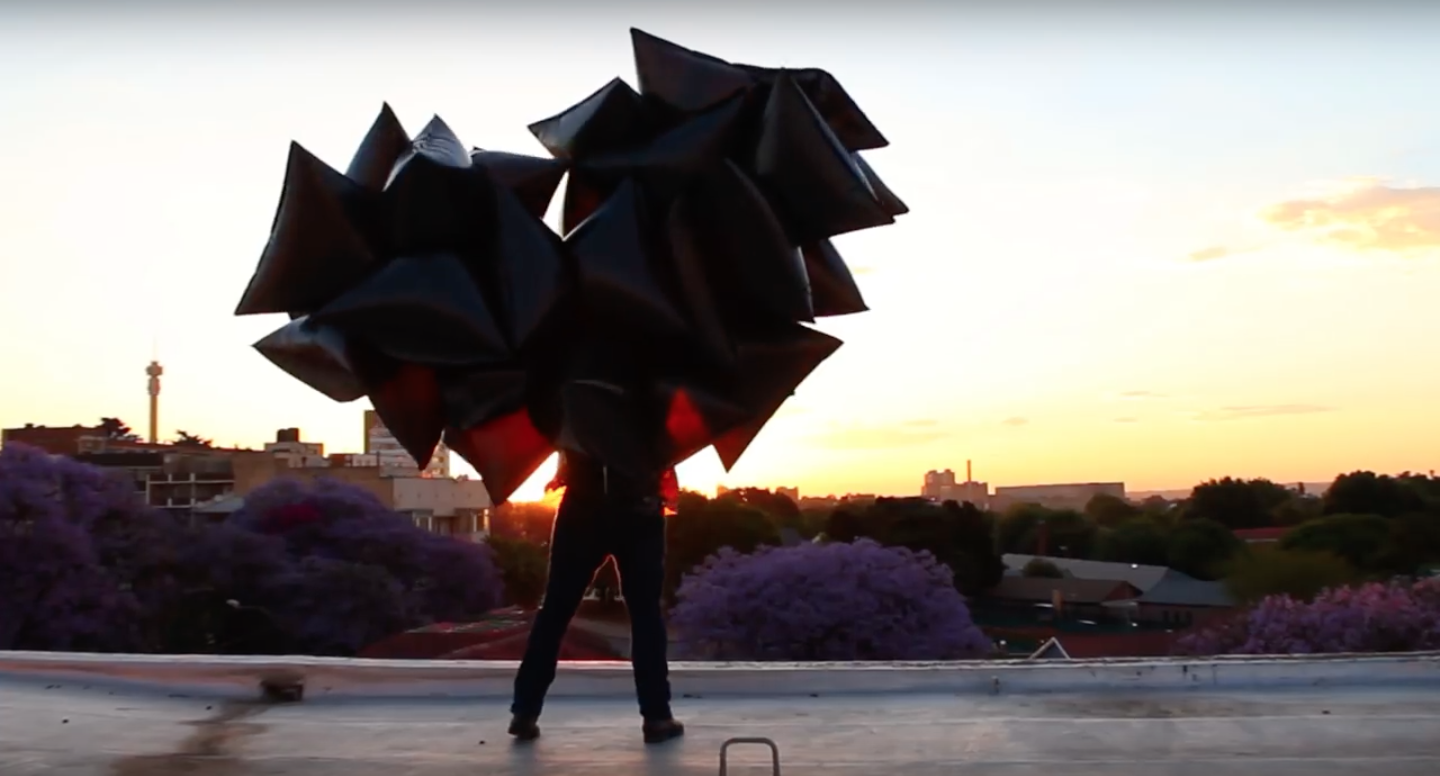 Working with no budget, but vast creativity, Francois set out to realise images themed around ancient myths of the Great Flood. Shot over three days, the video incorporated interested passers-by into the shoot and features additional performances by Dennis Webster, Mthwakazi, Akhona Zenande Namba and Nomthawelanga Ndoyko. The result is a beautiful and evocative meeting of sound and image.
Working with no budget, but vast creativity, Francois set out to realise images themed around ancient myths of the Great Flood. Shot over three days, the video incorporated interested passers-by into the shoot and features additional performances by Dennis Webster, Mthwakazi, Akhona Zenande Namba and Nomthawelanga Ndoyko. The result is a beautiful and evocative meeting of sound and image.